- Home
- entertainment
- news
- 8 things you probably didn't know about Kate Bush's 'Running Up That Hill'
8 things you probably didn't know about Kate Bush's 'Running Up That Hill'
Ayomikun Adekaiyero

- Kate Bush's "Running Up That Hill" has become popular again after appearing in "Stranger Things."
- The song featured prominently in season 4, part 1.
"Running Up That Hill" is the first single from Kate Bush's fifth album "Hounds Of Love."
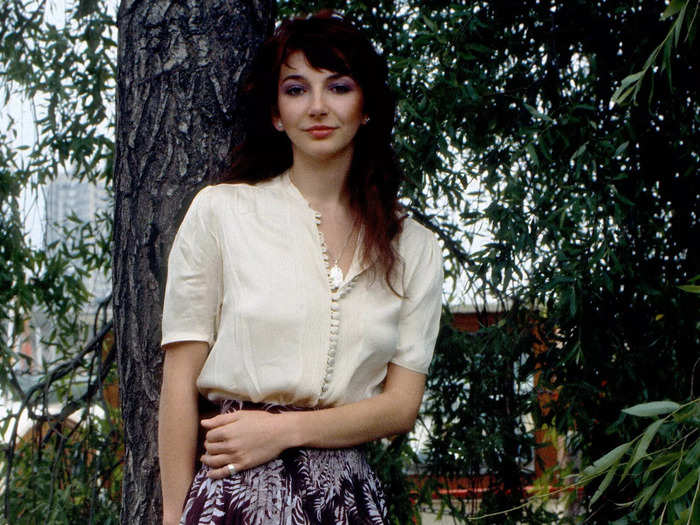
"Running Up That Hill" came from Bush's fifth studio album, "Hounds of Love," released in 1985. It is Bush's most successful album, reaching the top of the UK album chart.
In 1992, Bush said in an episode of BBC's "Classic Albums" that she felt "a lot of pressure" when creating it because her previous album, "The Dreaming," only reached number 3 on the UK charts.
"I think it was felt that me producing 'Hounds Of Love' wasn't such a good idea and for the first time I felt I was actually meeting resistance artistically," Bush said.
She added that she still had more "creative control" than ever before because she was more aware of how to produce an album.
"Running Up That Hill" was nominated for a Brit Award in 1986.
Kate Bush won her first Brit Award, the equivalent of a Grammy in the US, in 1987.
However, a year before, the English singer was nominated three times. "Running Up That Hill" was nominated for Best British Single and "Hounds of Love" was nominated for Best British Album.
Bush was also nominated for Best British Female, the award which eventually won in 1987 and has been nominated for six times.
The song's original name had to be changed because it had "god" in the title.
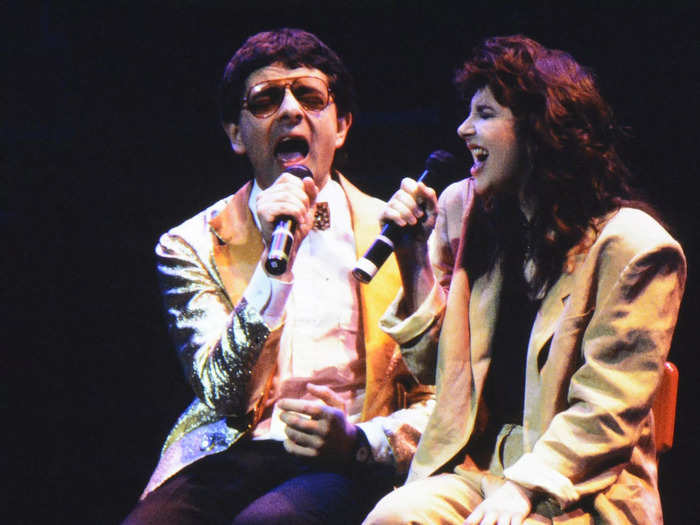
During her interview with "Classic Albums" in 1992, Bush revealed that she "regretted" having to change the name of the hit song.
Bush said the song was originally called "Deal With God," explaining: "We were told that if we kept this title then it wouldn't be played in any of the religious countries."
She added: "And generally, we might keep it blocked purely because it had 'god' in the title. Now, I couldn't believe this. This seemed completely ridiculous to me and the title was such a big part of the song's identity."
Bush said she "compromised" because she wanted people to hear her songs.
"I just spent two, three years making an album and we weren't gonna get this record played on the radio if I was stubborn so I felt I had to be grown up about this," Bush said. "But it's always something that I regretted doing and normally regret any compromises that I make."
The song is about men and women swapping roles.
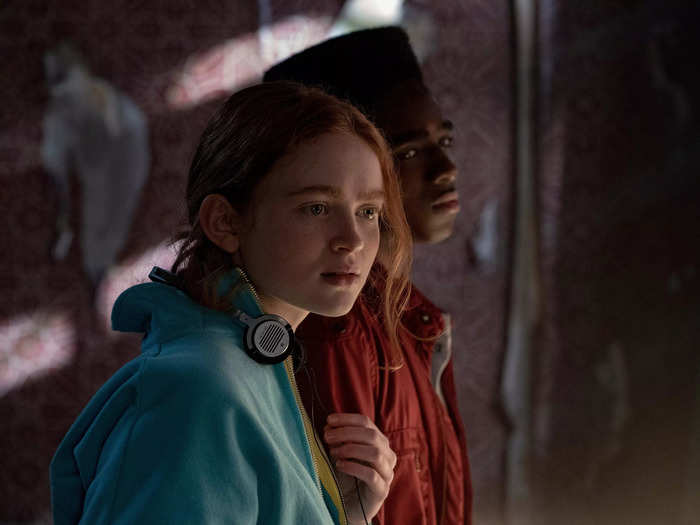
During the same 1992 interview, Bush explained the meaning behind the song.
"I was trying to say, really, a man and a woman can't understand each other because we are a man and a woman," the English singer said. "And if we could actually swap each other's roles, if we could actually be in each other's place for a while, I think we both will be very surprised and I think it would lead to a greater understanding."
Bush added that she chose the words "a deal with God" rather than "a deal with the devil" because she thought the idea of asking God was "so much more powerful."
"Running Up That Hill" was Bush's first song to be successful in the US and her first single to reach US top 10.
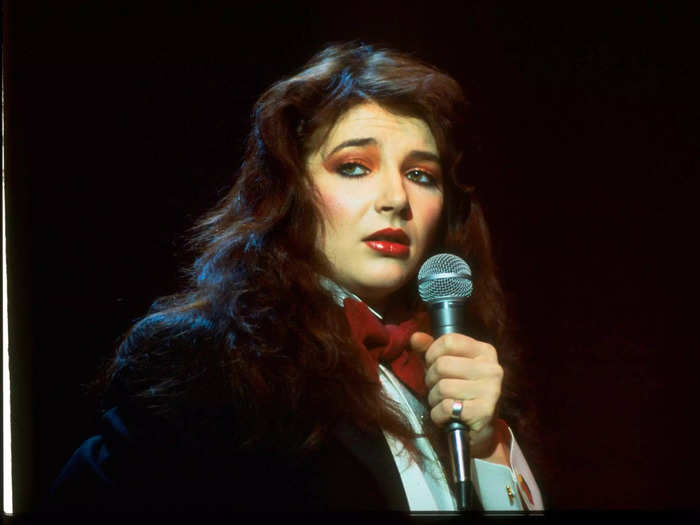
While Bush has always been popular in her native UK, her music has not been as successful internationally.
Billboard reported that "Running Up That Hill" originally reached the position of No. 30 on the US Billboard Hot 100 chart in 1985 when it first was released.
However, after being used in "Stranger Things," the song reached the No. 8 spot on the same chart this week.
This is Bush's first single to do so in her career.
Billboard also reported last week that the song reached No. 2 in Spotify's top 50 US songs, and No. 4 on its top 200 global chart.
Bush has since thanked "Stranger Things" fans in a message on her website.
The song was used in the 2012 Olympics.

"Running Up That Hill" also re-entered the UK top 10 singles chart, reaching No. 8 last week, according to the Guardian.
However, this is not the first time the song has re-entered the charts. It also reached the No. 6 spot after a remix was used in the 2012 Olympic Games closing ceremony, which was held in London.
When the song was first released, it reached No. 3 on the UK chart.
This is not the first time it has been used in a hit TV show
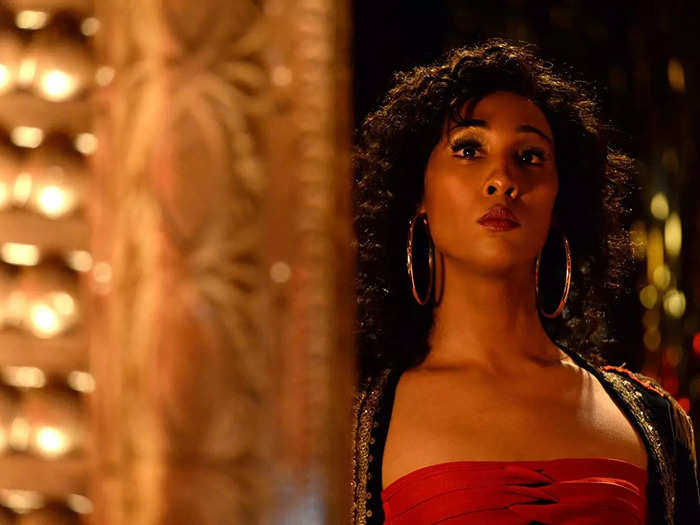
"Stranger Things" is not the first time the song has been used in a TV series.
"Running Up That Hill" was first used as the theme song for the BBC children's drama "Running Scared" in 1986.
It has also been used in the pilot of the Emmy-winning, critically-acclaimed series "Pose" and the Bafta-winning "It's A Sin."
A cover of the song by British rock band Placebo has also been used in a number of series such as "How To Get Away With Murder," "Big Little Lies" and the pilot of "The Vampire Diaries."
In "Stranger Things," the song is used to represent Max's isolation and alienation.
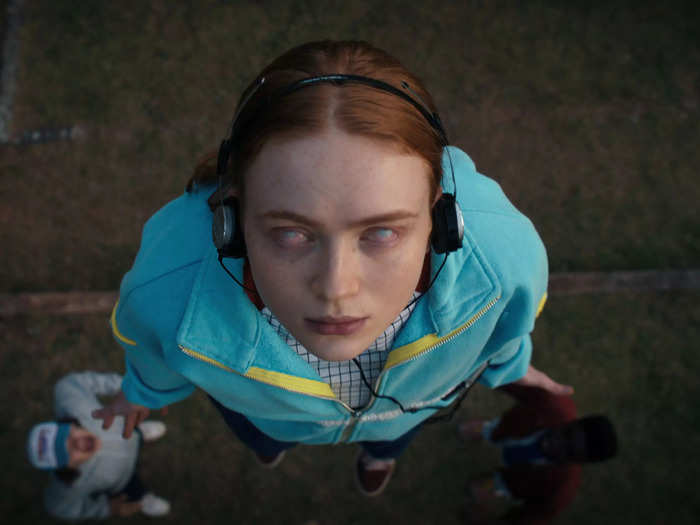
"Running Up That Hill" was used prominently in season 4, part 1, of the Netflix hit series "Stranger Things."
The show's music supervisor Nora Felder told Variety the song was chosen as the main theme for Max (Sadie Sink) in the season, who struggles with isolation from her friends.
"It immediately struck me with its deep chords of the possible connection to Max's emotional struggles and took on more significance as Bush's song marinated in my conscious awareness," Felder said.
Felder added: "In the face of Max's painful isolation and alienation from others, a 'deal with god' could heart-wrenchingly reflect Max's implicit belief that only a miracle of unlikely understanding and show of support could help her climb the hills of life before her. In Max's situation, the need for a 'deal with god' can perhaps be metaphorically understood as a desperate cry for love — to manifest the extraordinary understanding and support Max needed while feeling so painfully alone."
Variety reported that Bush is selective about giving permission for her songs to be used, but she is a fan of the Netflix series.
READ MORE ARTICLES ON
Popular Right Now
Popular Keywords
Advertisement